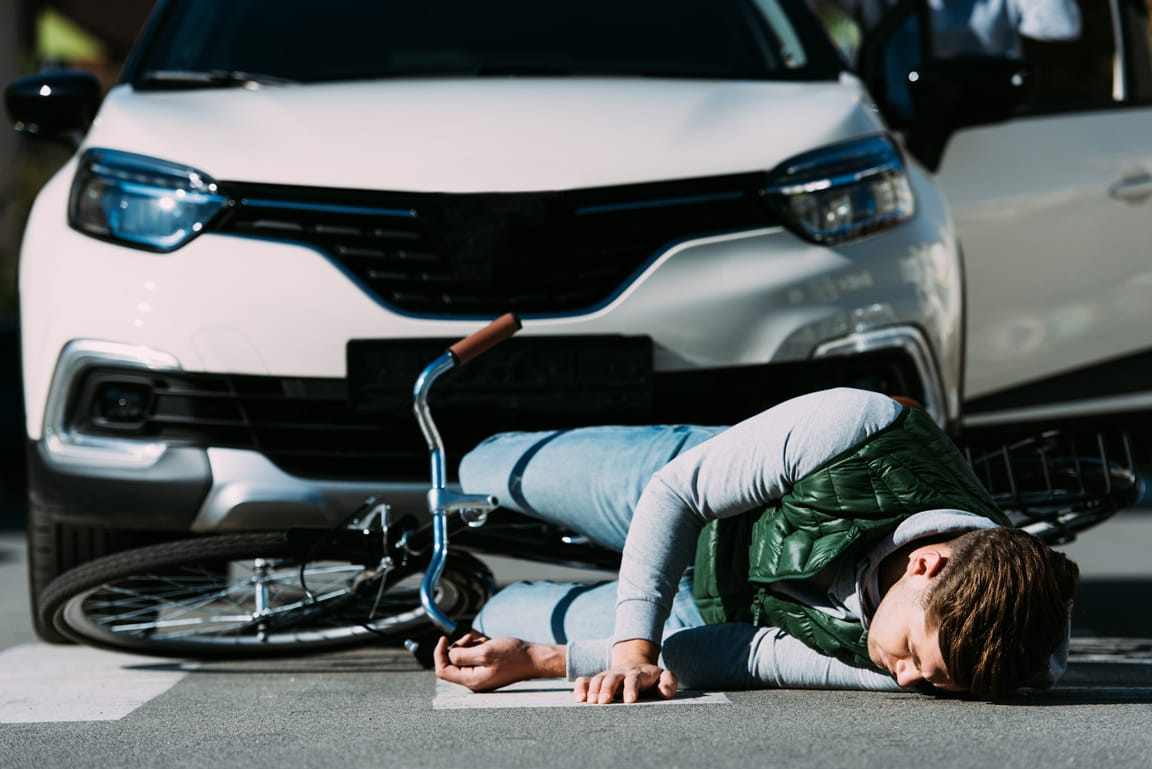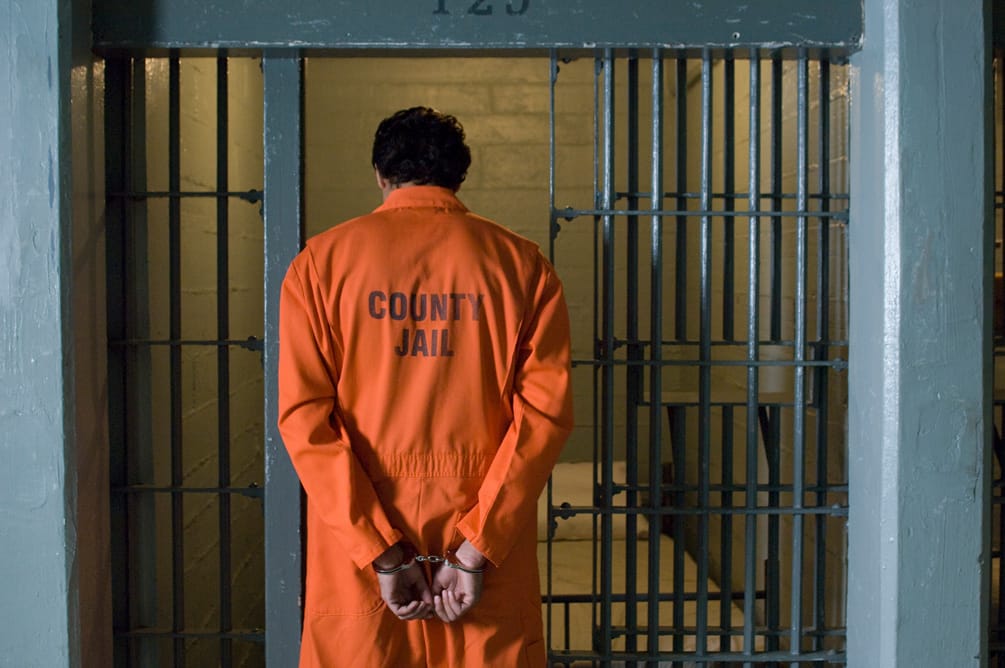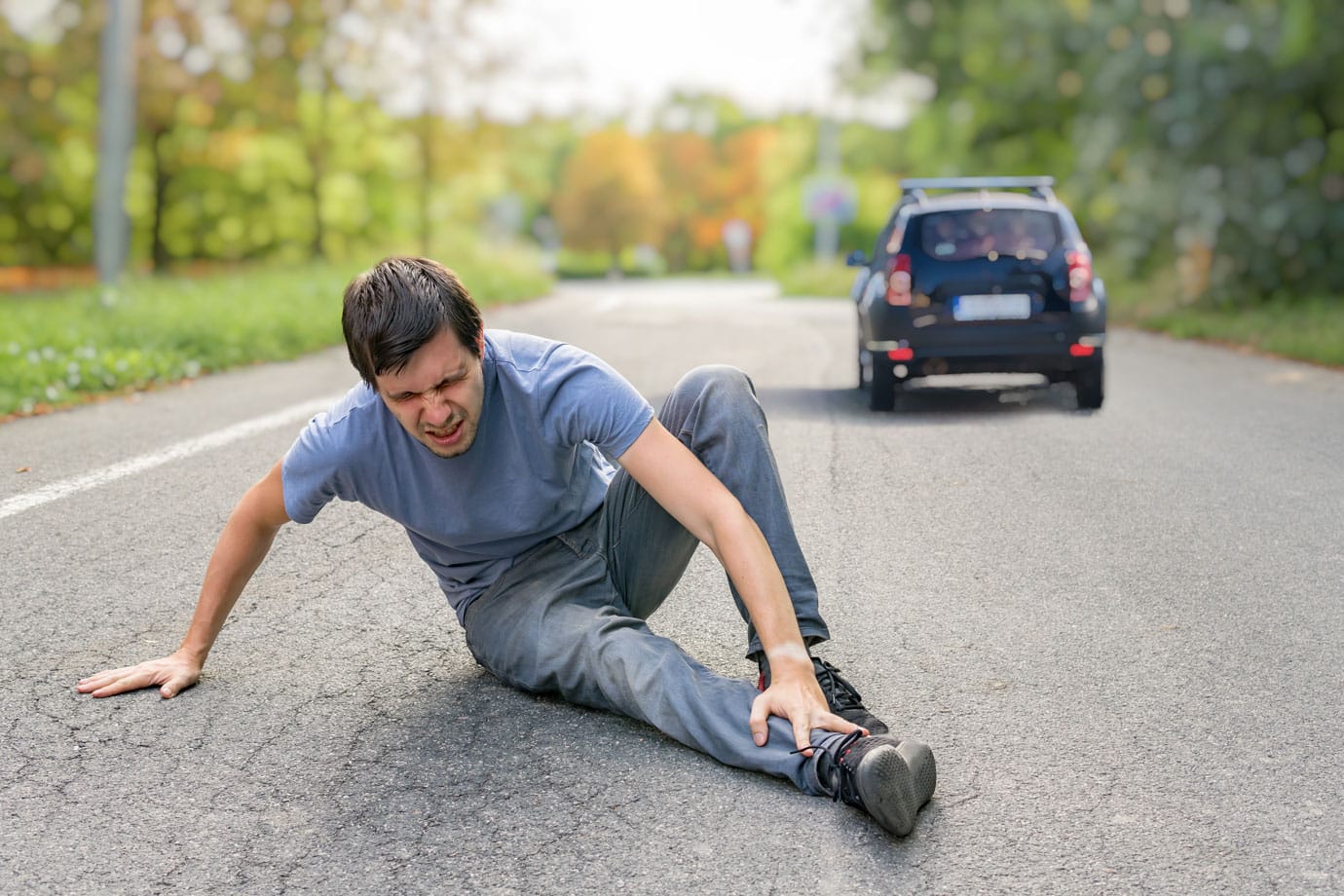If you or a loved one find yourselves in a difficult situation, perhaps stemming from a regrettable instance of drunk driving, we understand the urgency and stress that comes with it. At Angels Bail Bonds, we specialize in providing the support and assistance needed to secure bail for vehicular manslaughter charges, as defined under Penal Code 192(c).
In cases involving vehicular homicide or misdemeanor vehicular manslaughter where bodily injury has occurred, the complexities of the legal system can be overwhelming. It’s crucial to have an experienced criminal defense attorney by your side to navigate the intricacies of your case. Whether the charges stem from a car accident due to ordinary or gross negligence, our team is equipped to guide you through the bail process effectively.
Learn the basics about the bail process for a vehicular manslaughter charge, which might involve up to a year in county jail, and then contact Angels Bail Bonds today. Let us be your trusted partner in navigating the bail process for vehicular manslaughter charges. We are here to help you regain your freedom and prepare for your legal journey.
What Is Bail?
Bail in California refers to the amount of money or property that a defendant or their surety (a person responsible for the defendant’s appearance in court) must deposit with the court to secure the defendant’s release from custody while awaiting trial.
The purpose of bail is to ensure that the defendant appears in court for all scheduled hearings and does not flee before the trial. A bail schedule or table determines bail amounts, but a judge can deviate from the schedule based on various factors, including the severity of the offense, the defendant’s criminal history, and if the defendant is a flight risk. If the defendant fails to appear in court, the bail is forfeited, and a warrant may be issued for their arrest.
What Are Bail Bonds?
When you find yourself in a situation where you can’t afford to pay for your bail, bail bonds might be the solution for you. A bail bondsman, who a bail bond company employs, will charge you a fee in exchange for providing the payment. Bail bond companies in California charge only 10% of the total bail amount to post-bond for a defendant. So, if the bail amount is $20,000, the bondsman will charge $2,000 instead of the full amount. While this may still seem like a lot of money, it’s much more affordable than paying the entire bail amount, especially on extremely high bail amounts for some serious felonies.
Those rates can be as high as 20% for some immigration and federal charges because these rates are set by law, and all bail companies must charge the same amount. Despite the costs, using a bail bondsman can be a lifesaver for those who cannot afford to be released from custody on bail.
Remember, the concept of bail is founded on the principle that an accused person is considered innocent until proven guilty beyond a reasonable doubt, whether they’re being accused of infraction offenses or felonies.
What Happens At A Bail Hearing?
The amount of bail is normally set at the person’s initial court appearance, often known as the arraignment stage or pre-trial detention in either a city or county jail. A judge can either release a person on their own recognizance (OR) with a promise to appear in court at a later date or deny their OR and impose bail.
If the charges are infraction offenses or even some misdemeanor offenses—such as a DUI with no accident injuries or significant property damage— the person will usually be released without bail after being arrested. More serious felony charges, like a murder charge or assault with a deadly weapon, will not have OR as an option and will only be released from custody on bail.
You must pay the bail amount or post a bail bond on the bail schedule. An arresting officer might ask for a higher bail amount than what the bail schedule suggests.
What Factors Influence a Defendant’s Bail Amount?
The bail bond process starts when a defendant is in front of a judge to determine bail. Then several factors are put into play, including the severity of the misdemeanor or felony crime, criminal history, whether the defendant is a flight risk, community ties, financial resources, their potential danger to public safety, and even mental health are considered when determining bail amount.
The bail schedule further gives guidance for all criminal charges, with the judge having some leeway in the specific amounts, as mentioned. And even if they’re allowed out on bail, the defendant might have to be placed under house arrest, be prohibited from owning any deadly weapons or placed under electronic monitoring.
Have You Been Charged With Vehicular Manslaughter PC 187?
If you’ve been charged with a criminal offense like vehicular manslaughter, you or a loved one must contact the experts at Angels Bail Bonds immediately. Our team of bail bondsmen and criminal defense lawyers provide assistance during pre-trial detention at no extra cost, including nationwide.
What is vehicular manslaughter?
According to the California Penal Code Section 192, the crime of manslaughter is the unlawful killing of a human being without malice aforethought. The lack of malice aforethought or intent is what distinguishes this from a murder charge.
The Penal Code then specifies the three types recognized, which are voluntary manslaughter, involuntary manslaughter, and vehicular manslaughter.
- Voluntary Manslaughter: Voluntary manslaughter occurs when a person takes the life of another person during a sudden quarrel, in the heat of passion, or in the unreasonable belief that they are acting in self-defense. The key distinction between voluntary manslaughter and vehicular manslaughter is the absence of malice aforethought, which means there was no premeditation or intent to kill. However, the killing is still intentional and not accidental.
- Involuntary Manslaughter: Involuntary manslaughter refers to the unintentional or accidental killing of another person while engaging in an unlawful act, not amounting to a felony, or in the commission of a lawful act that might end in an unlawful manner or without due caution and circumspection. Involuntary manslaughter is generally associated with behavior done with recklessness or criminal negligence that results in someone’s death.
- Vehicular manslaughter: Vehicular manslaughter is a type of involuntary manslaughter where a death occurs as a result of driving with reckless indifference to human life. An even worse offense is gross vehicular manslaughter while under the influence of alcohol and driving with negligence and reckless indifference to human life. These cases are sometimes referred to as DUI vehicular manslaughter cases, but this is incorrect, as the correct term is gross vehicular manslaughter while intoxicated. DUI vehicular manslaughter applies to second-degree vehicular manslaughter, where the driver was intoxicated and intended to kill a person but without premeditation or a plan to do so.
So, while there are many ways to take a human life, a lack of premeditation and intent are key to vehicular manslaughter charges. Several factors will determine whether the crime is charged as a misdemeanor or felony, but the presence of ordinary, gross or criminal negligence is one of the main factors.
PC 192c further elaborates on different ways to classify vehicular manslaughter or taking a human life with a vehicle:
(1) Except as provided in subdivision (a) of Section 191.5, driving a vehicle in the commission of an unlawful act, not amounting to a felony, and with gross negligence, or driving a vehicle in the commission of a lawful act which might produce death, in an unlawful manner, and with gross negligence.
(2) Driving a vehicle in the commission of an unlawful act, not amounting to a felony, but without gross negligence; or driving a vehicle in the commission of a lawful act which might produce death, in an unlawful manner, but without gross negligence.
(3) Driving a vehicle in connection with a violation of paragraph (3) of subdivision (a) of Section 550, where the vehicular collision or vehicular accident was knowingly caused for financial gain and proximately resulted in the death of any person. This paragraph does not prevent the prosecution of a defendant for the crime of murder.
It is worth mentioning that the Penal Code also considers vehicular manslaughter in cases involving vessels or boats, as it established in 192.5:
Vehicular manslaughter pursuant to subdivision (b) of Section 191.5 and subdivision (c) of Section 192 is the unlawful killing of a human being without malice aforethought and includes:
(a) Operating a vessel in violation of subdivision (b), (c), (d), (e), or (f) of Section 655 of the Harbors and Navigation Code, and in the commission of an unlawful act, not amounting to felony, and with gross negligence; or operating a vessel in violation of subdivision (b), (c), (d), (e), or (f) of Section 655 of the Harbors and Navigation Code, and in the commission of a lawful act that might produce death, in an unlawful manner, and with gross negligence.
(b) Operating a vessel in violation of subdivision (b), (c), (d), (e), or (f) of Section 655 of the Harbors and Navigation Code, and in the commission of an unlawful act, not amounting to felony, but without gross negligence; or operating a vessel in violation of subdivision (b), (c), (d), (e), or (f) of Section 655 of the Harbors and Navigation Code, and in the commission of a lawful act that might produce death, in an unlawful manner, but without gross negligence.
These add classifications to vehicular manslaughter, which we can detail in the next section.
Types of Felony Vehicular Manslaughter Charges in California

According to the California Penal Code, there are two types of vehicular manslaughter that are charged as either misdemeanors or felonies: with ordinary negligence and with gross negligence.
Vehicular Manslaughter with ordinary negligence (PC 192(c)(1))
This type of vehicular manslaughter occurs when a person unintentionally causes the death of another person while driving a vehicle, and the death is a result of the driver’s ordinary negligence.
Ordinary negligence, or ordinary carelessness, refers to the failure to use reasonable care while driving, which includes violating traffic laws or not paying sufficient attention to the road. Vehicular Manslaughter with ordinary negligence is a wobbler offense, meaning it can be charged as either a felony or misdemeanor depending on the circumstances and the defendant’s criminal history, like whether the driver was also manipulating a deadly weapon.
It’s important to note that while these are the types of vehicular manslaughter charged as felonies in California, the specific circumstances and evidence in each case play a significant role in determining the charges and potential penalties.
Gross Vehicular Manslaughter while intoxicated (PC 191.5):
This offense occurs when a person causes the death of another person while driving under the influence of alcohol, drugs, or a combination of both. It is charged as a felony when the defendant has a prior conviction for certain DUI-related offenses, such as DUI causing injury or DUI manslaughter. Vehicular Manslaughter while intoxicated is a serious offense, and the penalties may include imprisonment, fines, license suspension, and completion of a DUI program.
Vehicular Manslaughter for Financial Gain
According to the California Penal Code 192c (3), vehicular manslaughter for financial gain refers to the act of unlawfully causing the death of another person while operating a vehicle with the intention of obtaining financial benefit or advantage. This offense involves knowingly engaging in dangerous driving behavior, such as reckless driving, DUI (Driving Under the Influence), or engaging in a deliberate act that results in the death of someone, all with the motive of gaining financial profit or advantage through insurance fraud or any other means. Note that this does not mean you intended to kill someone with the vehicle but rather intended to defraud the insurance company by provoking a collision with your vehicle and unintentionally got someone killed in that process.
Penalties in Vehicular Manslaughter Cases

It is crucial to note that the penalties mentioned below are general guidelines, and the actual sentencing may vary based on the jurisdiction, the defendant’s criminal history, the circumstances of the offense, and other substantial factors considered by the court. But some cases of felony vehicular manslaughter can carry a maximum penalty of 10 years in prison.
For Vehicular manslaughter with ordinary negligence:
- Convicted individuals may face imprisonment ranging from 1 year to 6 years in state prison or county jail, depending on the jurisdiction and specific circumstances of the cases.
- Monetary penalties can be imposed, typically ranging from several thousand to tens of thousands of dollars.
- In some cases, probation may be granted instead of or in addition to incarceration, requiring regular check-ins and adherence to certain conditions.
- Added to the financial and prison penalties, convicted individuals may have their driver’s license suspended for a specified period, often ranging from several months to a few years.
- The court may order the defendant to compensate the victim’s family for their losses, including funeral expenses, medical bills, and other related costs.
For Gross vehicular manslaughter:
- The penalties for gross vehicular manslaughter are typically more severe than those for ordinary negligence, with potential imprisonment sentences ranging from 4 to 10 years in state prison or county jail, again depending on jurisdiction and circumstances.
- Financial penalties can be significantly higher than in cases of ordinary negligence, potentially reaching tens of thousands of dollars or more.
- Similar to ordinary negligence, probation may be granted, but it may involve stricter conditions and monitoring due to the seriousness of the offense.
- The period of license suspension may be longer compared to ordinary negligence, often ranging from several years to a lifetime suspension.
- As with ordinary negligence, the court may order the defendant to pay restitution to the victim’s family for their losses.
The 192.5 of the Penal Code also states that someone who flees the scene of the crime will be subjected to an additional five years in state prison:
(e) A person who flees the scene of the crime after committing a violation of subdivision (a), (b), or (c), upon conviction, in addition and consecutive to the punishment prescribed, shall be punished by an additional term of imprisonment of five years in the state prison. This additional term shall not be imposed unless the allegation is charged in the accusatory pleading and admitted by the defendant or found to be true by the trier of fact. The court shall not strike a finding that brings a person within the provisions of this subdivision or an allegation made pursuant to this subdivision.
Average Bail for felony vehicular manslaughter (PC 192c)
Felony vehicular manslaughter is among the most serious crimes in the California Penal Code and on the bail schedule, with the initial bail set at $100,000 to $500,000 for felony vehicular manslaughter. In many counties, like Los Angeles County, the bail is as high as $2,000,000.
You Need An Experienced Bail Bond Agent That Specializes In Vehicular Manslaughter Defense

The bail bond process for a vehicular manslaughter charge is almost impossible without expert help at your side, as the standard bail for vehicular manslaughter is $1,000,000 to no bail. Nonetheless, a bail bond company and a criminal defense attorney can aid you during this difficult time and help you and your loved one obtain that bail money.
Best Legal Defense Against Felony Vehicular Manslaughter Charges
In defending someone accused of felony vehicular manslaughter, a criminal defense attorney could argue that the accused did not act with the required level of criminal negligence. They may present evidence to show that the substantial factor in the accident was unforeseen circumstances or a genuine mistake in judgment rather than negligent conduct or disregard for the safety of others.
For instance, the criminal defense attorney might argue that the defendant was momentarily distracted by an unexpected event on the road or that their actions were influenced by a sudden medical condition, such as a seizure or blackout. By establishing that the accused did not possess the necessary culpable mental state or criminal negligence, the defense attorney aims to challenge the prosecution’s claim that the defendant acted with recklessness or negligence.
The defense attorney may also explore alternative causes of the accident. They could argue that external factors, such as poor road conditions or mechanical failures, contributed significantly to the incident, shifting some of the blame away from their client or making it a simple mistake in judgment according to any reasonable person. By investigating and presenting evidence that highlights potential third-party liability or mitigating circumstances, the defense aims to create reasonable doubt regarding the defendant’s role in the accident, ultimately seeking a favorable outcome for the client.
Free Consultation & Case Review
Do you know someone who has been arrested for felony vehicular manslaughter? Look no further because we are here to help. At Angel Bail Bonds, we work with experienced bail bondsmen and criminal defense attorneys to be your best option, even in cases where you need bail for felony vehicular manslaughter. We offer flexible payment plans and affordable rates to make the bail process more manageable for you and your loved ones. If you have any questions about how bail laws and the bail bond process works in Orange County, San Diego, or anywhere in California, or if you need assistance helping a loved one avoid jail time, don’t hesitate to call us today.





